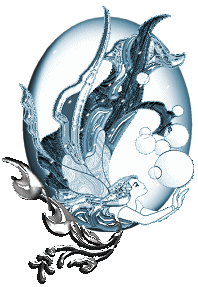
Atlantis
According to ancient myth, the name of the vast island-continent, and the many civilizations which flourished on it, before being destroyed in a cataclysm. There are numerous legends regarding Atlanteans and how their advanced civilization was destroyed by either their misuse of power or as punishment for moral decay. In the Middle Ages few doubted that Atlantis had existed. Many theories suggesting the exact location of the lost island have been advanced (most focusing in the area currently occupied by the Atlantic Ocean), and the nature of its utopian political system has been discussed extensively. Explorers have traveled thousands of miles looking for traces of its culture and over forty locations for the site have been identified around the globe, but no real evidence of its existence has ever been discovered. Plato gave the first account of Atlantis in various dialogues around 350 BC, describing the Atlanteans as a wealthy, successful, politically advanced and militarily powerful society that overrun Europe with their armies, being only defeated and repulsed by the Greeks. Shortly afterwards an earthquake caused Atlantis to sink beneath the ocean. Plato recounts the story of Egyptian priests who 200 years earlier had reportedly described Atlantis as a powerful island empire seeking to dominate the Mediterranean world more than 9,000 years before Plato's time. The island was supposedly larger than Libya and Asia Minor combined and had been located in the Atlantic Ocean, west of the Pillars of Hercules. The modern myth of Atlantis began in earnest in 1882 with the publication of Atlantis: The Antediluvian World by ex-American congressman Ignatius Donnelly. Originally inspired by documents he read at the Library of Congress, Ignatius took upon himself to write a fanciful account of his own invention, concluding that Atlantis was the location of the Garden of Eden and crediting its people with the creation of alphabetical writing and scientific medicine. Furthermore, he claimed that the ancient peoples (Greeks, Phoenicians, Hindus and Scandinavians) gods and goddesses were simply the kings, queens, and heroes of Atlantis and that the acts attributed to them in mythology are a confused recollection of real historical events. Even today there are people that, inspired by Donnelly's book, believe that mankind first rose to a state of civilization in Atlantis. They claim that The Sun-worship found throughout the world are relics of the original religion of Atlantis. In the late nineteenth and twentieth centuries various occult theories emerged regarding the lost island race. Madame Helena P. Blavatsky, cofounder of Theosophy, believed that the Atlanteans were descendants from another legendary lost continent, Lemuria, and were the Fourth Root Race of all humans. She claimed that the information had come from the book of Dyzan, an allegedly Atlantean work that had survived and was now in Tibet. The philosopher and occultist Rudolf Steiner claimed to be able to access the Akashic Records by psychic means, which also described the Atlanteans as descendants of Lemurians. Some writers have speculated that the present-day American Indians migrated from the Old World to the New by way of Atlantis; shadowy legends among them (the American Indians) seem to assist these speculations. Others point out the startling similarities in technology and culture among ancient peoples who never could have seen each other, and universal myths of a great flood and a race of gods, as evidence of its existence. Although traditional accounts of Atlantis have been proved false, today some archaeologists speculate that the Atlantis legend may have originated with the volcanic eruption that destroyed a highly civilized Minoan town on the island of Thera in the Aegean Sea about 1450 BC. Regarding this possibility, Dr James Mavor's book Voyage to Atlantis caused a minor sensation when was first published in 1969. Another book - The Secret of Atlantis, by Otto Muck - points to evidence of the impact of a colossal body with the Earth in the southwest Atlantic as the cause of Atlantis' demise. Fiery debris rained on Atlantis, followed by tidal waves that inundated the island. Muck refers to twin depressions 23,000 ft deep in the sea floor close to Puerto Rico, and to 3,000 shallow, eroded troughs, occupying part of a elliptical area that extends out over the Atlantic. He deduces that these were the result of an asteroid 6 miles (10 kilometers) wide that hit the Earth with an explosive force of 3,000 medium-sized hydrogen bombs, triggering the earthquakes described in Plato's story, and splitting the Atlantic open along the line of the present-day mid-Atlantic Ridge. Furthermore, the Earth's Poles were shifted, and a new geological age abruptly began, with the seasons becoming sharply differentiated for the first time. Siberia, until then having a cool, but not freezing, climate, was suddenly plunged into Artic cold, instantly freezing thousands of mammoths and woolly rhinoceroses, many of them to be found in good condition several millennia later. Of all the world's unsolved puzzles, Atlantis is probably the biggest, exerting a mysterious influence over humankind for thousands of years. The passage of time has not diminished interest in the fabled continent, nor have centuries of skepticism by scientists and scholars succeeded in banishing it to obscurity.


